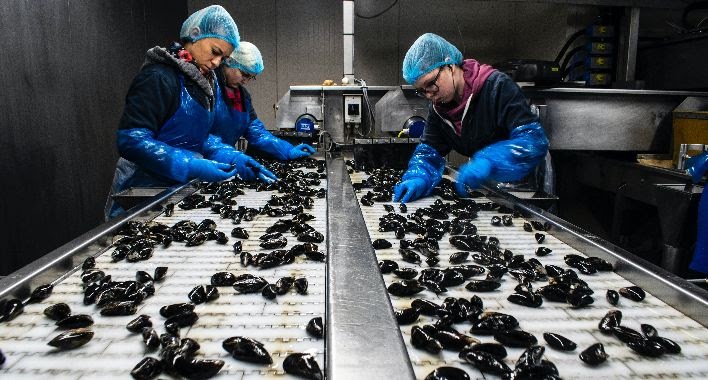I hate my job, what should I do? A valid question with a difficult answer. Unless we are very rich heirs, we all have to earn our bread and butter with hard work. If we can develop professionally in something we like, or even really like, it can work out well for us.
However, it is very difficult to round off professional moves. It also happens in other aspects of life. For example, when we buy or rent a house, we never seem to find the perfect house: the one that fits the price does not have an elevator, the one with the right space is in a horrible street, the one near the subway is too small… And what to say about when it comes to couples: we want him/her to fulfill everything, be one thing and the opposite, have no faults and make us stay in love forever and ever.
Something similar happens in the professional sphere: the job that has a good schedule, does not have a good salary, the one that has a good salary has a bad schedule, the one that has one of the 8 factors that workers value the most, turns out it does not motivate us.

Why do we sometimes feel that we don’t quite fit all the important pieces of our professional life together? Are we setting our expectations too high? How do we know if we are asking for something impossible or if we are settling for something worse than what we could get?
These are important questions, but none of them has a simple answer to a common statement. “I hate my job”.
I hate my job: avoid it right from the start
A couple of weeks ago we shared with you 10 things you should know if you are a student. To do this, we asked a group of people of different ages and professions to reflect back in time. They explained to us how they viewed the decisions they made early in their education now that they are several years into their careers. One of those people shared a valuable lesson she had learned over time: when choosing a certain profession it is important to reflect on what you like or are interested in, but also what kind of life you want to have in the future.
That is to say, we must ask ourselves what is the professional profile we want to develop and what do we give importance to in the professional field (status, money, free time, structured schedule…). This is what will shape our lifestyle and will influence a lot when trying to answer the dreaded question: what should I do if I hate my job?
There is no doubt that we can all change, developing new tastes and aspects over time. However, if we choose a profession that, at first glance, is very far from our values, it can end up generating a great deal of “existential stress”. It is not easy to feel that you do not fit in your job, that you do not feel professionally fulfilled, that your job has nothing to do with you, or, even worse, that your job “takes away your life” in exchange for nothing.
Similarly, it is not psychologically healthy to aspire indefinitely to find that ideal job in which everything fits: it can be an option far off from reality and always lead to frustration.
Once again, a proper approach to our profession (i.e., our psychological experience of being the professionals we are) requires balancing our capabilities, dreams, expectations, and needs.
The passion hurdle
For some time now, great importance has been given in the professional field to the idea of passion. We must identify what we are passionate about and pursue it, make our hobbies our profession, be passionate about what we do.
Recruiters and HR managers read hundreds of cover letters every day in which candidates describe themselves as “passionate about what they do”, explaining the functions they have performed in previous positions with the phrase “I am passionate about” this or that.
Of course, being passionate about what you do is not only a great good fortune but a priceless blessing. However, how many people do you know who are passionate about their work? Careful, we don’t mean people who like it or feel comfortable or who don’t say “I hate my job”. We are talking about passion, about true love, like in Disney fairy tales.
Indeed: very little. Many people are lucky enough to more or less like what they do, and many others like practically nothing, but only a few are truly passionate about their profession, only a few bluntly spare themselves the phrase “I hate my job”. So, if it is so rare, why do we feel uncomfortable or frustrated when we find that what we do does not drive us crazy with love? Why do we feel so strange when we find that what we used to be passionate about has lost its charm over the years?
Judging by what we see out there, it’s actually not strange that this happens to us, but rather normal.
What happens is that, at some point, someone has made us believe that we have to feel passionate about what we do, not just like, be interested or motivated. That what is normal, what we should aspire to, is to throw ourselves into our profession as if it were our life because, at the end of the day, what is important is that we are passionate about what we do.
In short, we are happy and envious of those people who can dedicate their professional lives to developing what they are truly passionate about, but that does not mean that we should feel miserable for not belonging to that group.
Consider work as work again
After years of exalting passion, it is necessary to turn the paradigm a bit and go back to considering things as they really are, looking at them in a more even-handed way.
Obviously, we all aspire to work at something pleasant and enjoyable, something we enjoy and can feel a sense of worth. However, we must also assume that work is a means of earning a living and that, as long as it meets certain minimum standards, it does not have to be perfect. If people are not perfect and houses are not perfect, why should our professions be perfect?
There is a huge difference between conformism and conformity that many people tend to forget, and it has a lot to do with our ability to look realistically at what we are engaged in.
Conformism is the defeatist attitude whereby we assume that what we have is the most we can aspire to and that it is not worth wishing for anything different, let alone making any moves to improve our situation. On the other hand, conformity is the realistic attitude according to which we accept what we have at a given moment after calculating the pros and cons, but this does not prevent us from aspiring to change, evolution and improvement.
From this point of view, trying to progress in our work is fantastic, because wanting to live better and more in line with our values and needs is a symptom of mental health. However, this is not incompatible with seeing work for what it really is without asking it to be something it cannot be.
A realistic approach is a healthier approach
Work is, above all, a job and we do not have to be passionate about it. Of course, we may ask ourselves what to do if the question comes to mind: what should I do if I hate my job? However, the important thing is that our profession should not be a significant obstacle to our psychological well-being and self-esteem.
If it is, then it is time to ask for professional help to see which piece has shifted in the meshing of our values, vocation, needs, and capabilities.
As HR managers, we must also pay attention to these issues when we approach our teams with different working conditions, motivational programs, and emotional pay or when trying to keep them in our company because of their talent.
Ifeel has created an emotional well-being program for companies through which it is possible to provide a psychological therapy service to your company’s employees and receive continuous and personalized advice on how to take care of the psychological health of your staff.
Ask for information today and let’s get started, whether it’s to rekindle passions or to give work the place it deserves in our lifestyle. We will do our best to change the phrase “I hate my job”.
You may also be interested in this post about burnout at work.










